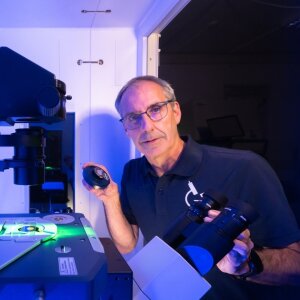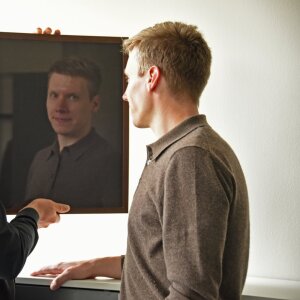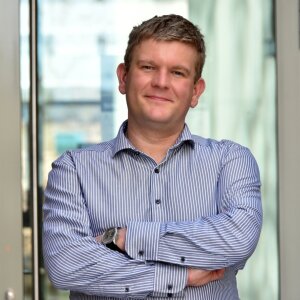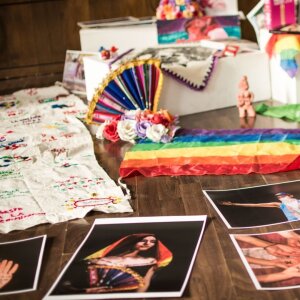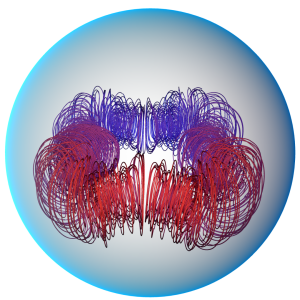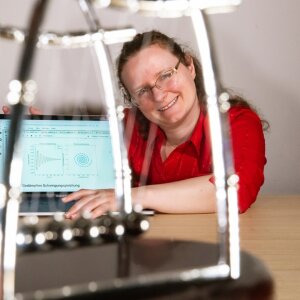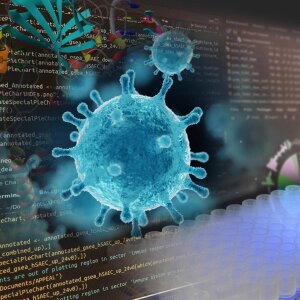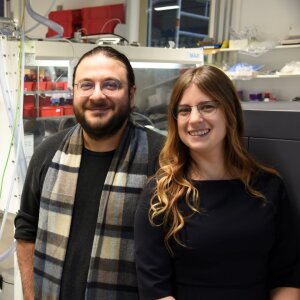New projects
»Earthquakes« in living cells
Prof Dr Volker Deckert in a measurement laboratory at the Institute of Physical Chemistry at the University of Jena. He is leading the ambitious project together with colleagues from the University of Ulm and the ITB in Bingen.
Image: Jens Meyer (University of Jena)Carl Zeiss Foundation supports innovative project targeting 3D analysis of cell interiors with €750,000
The Carl Zeiss Foundation has announced its support for the »Geoscientifically inspired, molecule-specific 3D depth analysis with nanometre solution« project, which includes Prof. Dr Volker Deckert (photo) of the Institute of Physical Chemistry in Jena, as part of its »CZS Wildcard« funding programme.
Launched at the start of 2024, the project aims to apply seismic techniques to the minute structures in living cells and thereby gain non-destructive insights into their interiors. The researchers fire pulses of infrared light to trigger nano-»earthquakes« that propagate to the cells’ surface in the form of waves, where—the researchers believe—they can be measured. The team initially hopes to develop reference methods during the two-year project term. [sl]
Bias detection tool
Prof Dr Tobias Rothmund and Arne Stolp (photo) are developing a self-reflection tool that anyone interested can use to determine their own political bias.
Image: Anne Günther (University of Jena)Federal Ministry of Education and Research supports communication science project
Political bias is commonplace in many public debates today, especially when it comes to controversial topics such as climate change and the COVID-19 pandemic. A team of communication scientists led by Prof. Dr Tobias Rothmund and Prof. Dr Christian Thiel is examining ways to overcome this bias.
Their project »SensipoV—Sensitization ̈for political bias in dealing with political scientific evidence as a challenge for̈ science communication« has now secured funding from the Federal Ministry of Education and Research (BMBF). The researchers’ approach involves raising awareness of the problem and developing a tool that anyone will be free to use to check and reflect on their political bias. [sh]
»DeKarbon«
Martin Oschatz teaches at the Institute of Technical Chemistry and Environmental Chemistry at the University of Jena.
Image: Anne Günther (University of Jena)State of Thuringia provides €980,000 of project funding
A team led by Prof. Dr Martin Oschatz (photo) is working on new methods to capture and convert carbon dioxide (CO2). The researchers hope their efforts will contribute to reductions in the emissions and atmospheric concentration of the greenhouse gas, which can be harmful to the environment. The state of Thuringia has agreed to support the project through to the end of 2025.
The »DeKarbon« project group is developing new polymer materials capable of filtering and sequestering the greenhouse gas from industrial and power plant exhaust emissions and from the air. The researchers then aim to convert the gas into chemically useful compounds such as methane, benzine, diesel and kerosene. These processes are primarily powered by renewable energy, which renders the whole process sustainable. [Krauß]
»Merian-CALAS«
The University of Jena is cooperating with partners in Latin America as part of the Merian-CALAS joint project. (symbolic photo)
Image: Evelyn SchonfeldNew funding phase for Latin America region centre
From war and the climate crisis to biodiversity loss, crisis is ubiquitous at present. This global phenomenon is particularly acute in Latin America due to the region’s extreme social, economic and cultural inequalities.
These crises and approaches to solving them will be explored in »Knowledge Laboratory 4« with its focus on »Strategic identities and crisis in Latin America«. It connects researchers at the Jena/Buenos Aires regional centre as part of the »Maria Sibylla Merian Center for Advanced Latin American Studies in the Humanities and Social Science« (Merian-CALAS), a joint project to which the Federal Ministry of Education and Research (BMBF) has provided total funding of €19 million. [sl]
Super-strong magnetic fields
The so-called "sausage instability" of the magnetic field in a neutron star.
Picture: W. Cook/Universität JenaDFG funds collaborative German-Polish research project on neutron stars
The »MERLIN« project (The Magnetic Field Dynamics in Neutron Stars) has secured around half a million euros in funding from the German Research Foundation (DFG) and the Polish National Science Centre (NCN). It is led by physicist Prof. Dr Sebastiano Bernuzzi of the University of Jena and Prof. Dr Brynmor Haskell of the University of Warsaw, who hope to decipher the configuration of magnetic fields within neutron stars (see image).
Neutron stars can form after a supernova explosion, when a star collapses in on itself. The magnetic field of such objects can become a hundred million times more intense than that of the Earth. The specific research questions include whether there is an equilibrium configuration for the magnetic field within such neutron stars. [sl]
Illustrative numerical experiments
Dr Christin David presents an experiment on the transmission of the mechanical impulse.
Image: Jens Meyer (University of Jena)Physicist secures funding for enhanced digital teaching in STEM subjects
Physicist Dr Christin David (photo) has secured funding through the »Fellowships for Innovations in Digital University Teaching« programme. This funding is awarded by the Thuringian Ministry of Science together with the Stifterverband. In her work, David develops illustrative numerical experiments for new students in STEM subjects, especially those studying to become teachers.
»Our aim is to develop new teaching methods and generally provide new ideas and inspiration for teaching,« says Christin David. This includes building virtual experimental set-ups that recreate real phenomena. Students are then expected to convert that set-up into a formula with variable parameters and learn to actively develop programmes that translate these formulas into computer code. [sl]
»APPEAL«
The European research platform Appeal is looking for new antiviral agents.
Collage: UKJJUH establishes platform for antiviral development
Together with 12 partners from a total of six countries, the Jena University Hospital (JUH) is establishing a European research platform called APPEAL with total funding of €8.1 million from the EU and UK across a five-year term. It is hoped that the platform will help to create a pipeline for the development of antiviral agents as a precaution against future pandemics.
In its search for new agents, the team—which is coordinated from JUH—plans to focus its efforts on host cells. This is because there is a far lower risk of pathogens developing resistance to agents that target host cells compared to agents that attack viruses directly. The researchers are striving to identify target proteins in cells, using self-learning algorithms to review and analyse previously published data from high-throughput gene knock-out studies with infected cells. [vdG]
»Nexus«
Dr Sina Saravi (l.) and Dr Desirée Leistenschneider (r.) are funded by the Nexus programme.
Image: Anne Günther (University of Jena)Carl Zeiss Foundation funds two projects with €1.5 million each
The Carl Zeiss Foundation has awarded funding for two interdisciplinary research projects at the University of Jena this year through its »CZS Nexus« programme. In February 2024, Dr Sina Saravi (left) secured funding to develop optical neural networks with the aim of making image recognition faster and more resource-efficient. This innovation is similar to an intelligent, nanostructured camera lens.
Since January 2024, Dr Desirée Leistenschneider (right) has been working on a project to develop novel aluminium-nitrogen batteries. In addition to their lightweight design and high energy density, the established recycling processes for the materials involved means these batteries could also be rechargeable. Each research group will receive €1.5 million for a five-year period. [MK]
